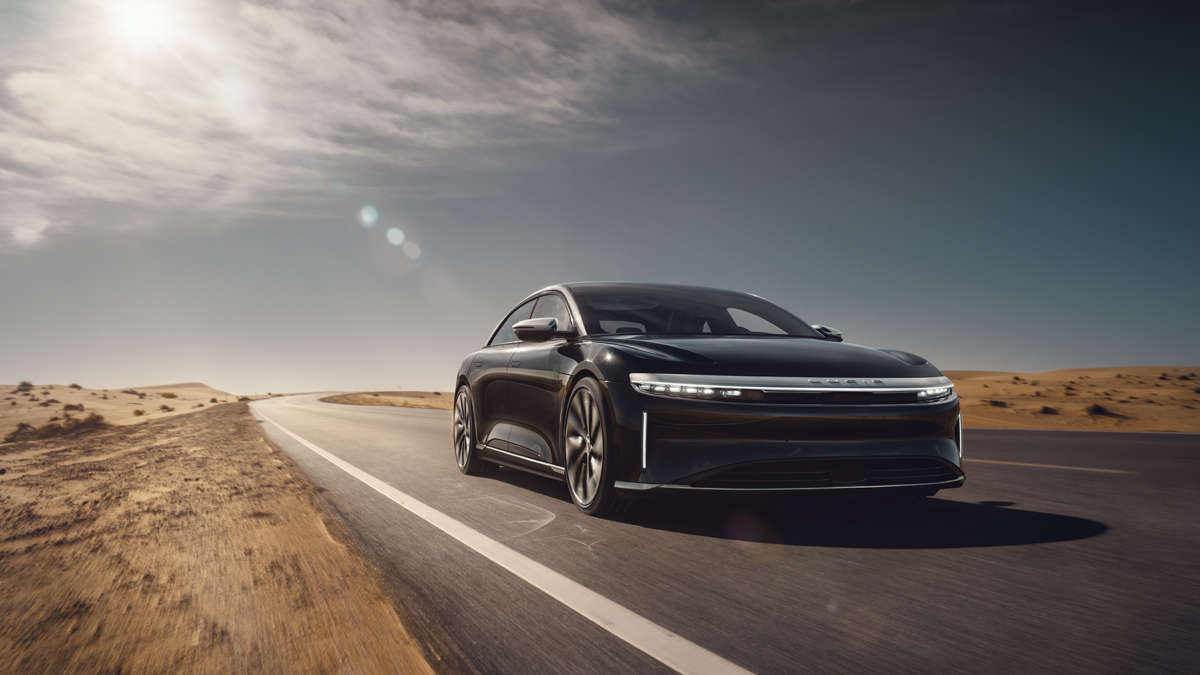
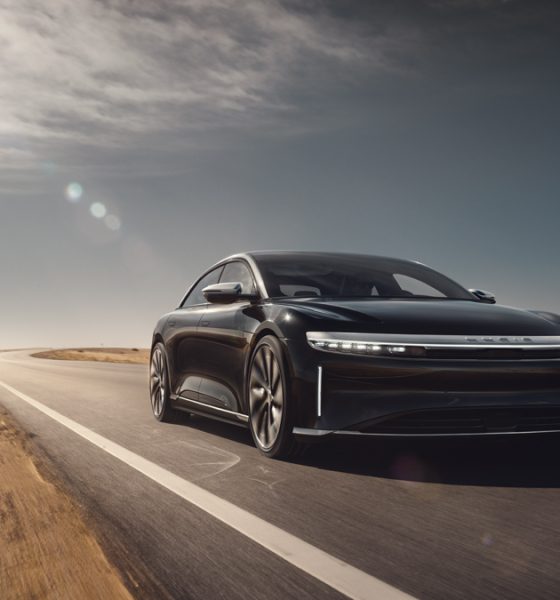
News
Lucid Motors sees Tesla as an ally, “Please don’t describe us as a Tesla Killer”
After Tesla established itself as the leader in electric vehicle manufacturing, it became common for the biggest names in the automotive industry to claim that they are coming up with a car that would knock the Elon Musk-headed company off its prolific pedestal. However, self-deemed “Tesla Killers” have consistently fallen short, lacking battery technology, performance, or both, in a quest to compete with the “who’s who” of EV production.
Lucid Motors’ “Air,” a vehicle that claims a 400-mile range and exceptional 1,000+ horsepower setup with a 235 mph top speed, is one of these vehicles. However, it’s not the manufacturer claiming that their car can beat Tesla and “kill” the company’s momentum. In fact, Lucid CEO and CTO Peter Rawlinson, a former Tesla executive, is spreading encouragement to his past employer.
“The world’s big enough that we can both thrive and prosper alongside each other,” Rawlinson said in an interview with Ars Technica. He also explicitly stated that being a “Tesla Killer” is not appropriate for Lucid or its goals.
“Please don’t describe us as a Tesla Killer,” Rawlinson remarked.
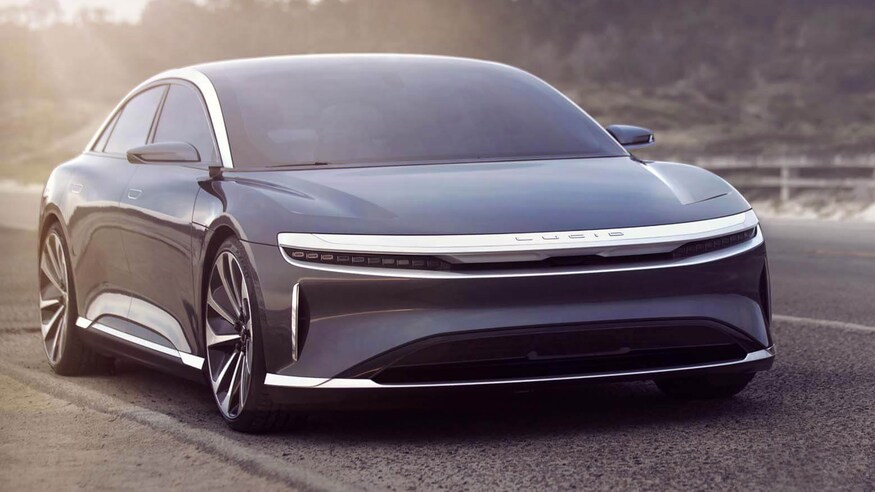
Competition is what makes most industries flourish. A constant need to prove one product is better than another is what pushes technological advancements, especially in the automotive sector. While a necessity, cars are supposed to be fun. If they weren’t, they wouldn’t have all the bells and whistles and features that consumers love. Tesla, for example, has Fart Mode. While fun and humorous, does anyone need it? Absolutely not, but it’s something that’s just fun to have.
Tesla continues to dominate electric vehicle sales in nearly every country across the world because of its technology and performance. The company’s vehicles offer more range than any other EV on the market, and the company’s release of a million-mile battery is getting closer. The speed and acceleration that come with the impressive battery range are also a significant selling point for some of those who require a little bit of an adrenaline rush when pushing the accelerator.
Rawlinson accepts all of these points and agrees that Tesla is at the head of the pack.
“It’s a justifiable comparison in one respect, because I think that Tesla is undeniably the leader in electric powertrain technology today,” he told Jonathan Gitlin of Ars Technica. “The most important thing here is efficiency, and we’re chasing down four miles per kilowatt-hour for our car.”
Lucid is aiming to build a quality product, and they’re taking their time doing it. While the Air was unveiled in 2017, it was more influenced by the Mercedes-Benz S-Class than the Tesla Model S. The car will be built at the company’s plant in Casa Grande, Arizona, which is still under construction but is near completion.
Lucid has also opened up its market to the Middle East, aiming to spread its tech to the countries of Saudi Arabia and the United Arab Emirates.
Elon Musk once said that no electric vehicle is a Tesla competitor, because each electric car accelerates the transition to sustainable energy. The real enemy is the internal combustion engine manufacturers who continue to harm the environment.
It seems Musk’s old colleague has joined this mentality.

News
Tesla to discuss expansion of Samsung AI6 production plans: report
Tesla has reportedly requested an additional 24,000 wafers per month, which would bring total production capacity to around 40,000 wafers if finalized.

Tesla is reportedly discussing an expansion of its next-generation AI chip supply deal with Samsung Electronics.
As per a report from Korean industry outlet The Elec, Tesla purchasing executives are reportedly scheduled to meet Samsung officials this week to negotiate additional production volume for the company’s upcoming AI6 chip.
Industry sources cited in the report stated that Tesla is pushing to increase the production volume of its AI6 chip, which will be manufactured using Samsung’s 2-nanometer process.
Tesla previously signed a long-term foundry agreement with Samsung covering AI6 production through December 31, 2033. The deal was reportedly valued at about 22.8 trillion won (roughly $16–17 billion).
Under the existing agreement, Tesla secured approximately 16,000 wafers per month from the facility. The company has reportedly requested an additional 24,000 wafers per month, which would bring total production capacity to around 40,000 wafers if finalized.
Tesla purchasing executives are expected to discuss detailed supply terms during their visit to Samsung this week.
The AI6 chip is expected to support several Tesla technologies. Industry sources stated that the chip could be used for the company’s Full Self-Driving system, the Optimus humanoid robot, and Tesla’s internal AI data centers.
The report also indicated that AI6 clusters could replace the role previously planned for Tesla’s Dojo AI supercomputer. Instead of a single system, multiple AI6 chips would be combined into server-level clusters.
Tesla’s semiconductor collaboration with Samsung dates back several years. Samsung participated in the design of Tesla’s HW3 (AI3) chip and manufactured it using a 14-nanometer process. The HW4 chip currently used in Tesla vehicles was also produced by Samsung using a 5-nanometer node.
Tesla previously planned to split production of its AI5 chip between Samsung and TSMC. However, the company reportedly chose Samsung as the primary partner for the newer AI6 chip.
Elon Musk
Elon Musk: Tesla could be first to build AGI in humanoid form
Musk’s statement was shared in a post on social media platform X.
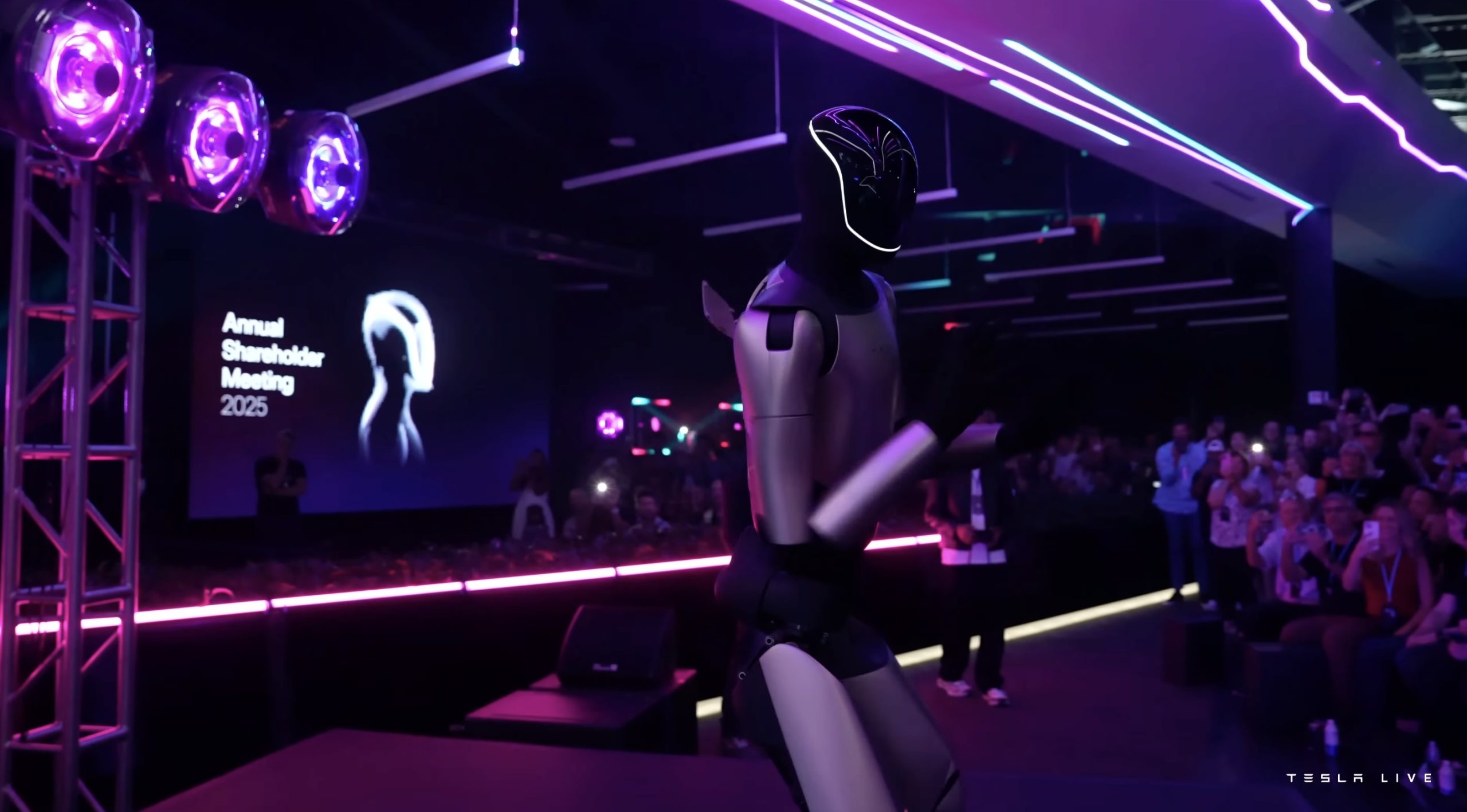
Elon Musk predicted that Tesla could become one of the developers of Artificial General Intelligence (AGI) in humanoid form. Musk’s statement was shared in a post on social media platform X.
In his post, Musk stated that “Tesla will be one of the companies to make AGI and probably the first to make it in humanoid/atom-shaping form.”
The comment comes as Tesla expands development of its Optimus humanoid robot.
During Tesla’s Q4 earnings report, Elon Musk stated that production of the Model S and Model X would be phased out at its Fremont, California, facility. The vehicles’ production line will then be converted to a pilot line for Optimus. Tesla is looking to produce 1 million units of the humanoid robots annually to start.
Musk has previously stated that Optimus could eventually function as a von Neumann probe. The concept, proposed by mathematician John von Neumann, describes a machine capable of replicating itself using planetary resources and sending those replicas to other worlds.
Optimus would likely only be able to achieve this potential if it manages to achieve Artificial General Intelligence.
Other leaders in the AI sector have also expressed strong expectations about AGI’s potential. Demis Hassabis, CEO of Google DeepMind, recently spoke about the technology at the India AI Impact Summit 2026, as noted in a Benzinga report.
“It’s going to be something like ten times the impact of the Industrial Revolution, but happening at ten times the speed,” Hassabis said.
Elon Musk’s recent comments about Tesla producing a product with AGI could hint at further collaboration among his companies. So far, Tesla is actively pursuing autonomous driving, but it is xAI that is pursuing AGI with its Grok program.
Considering that Elon Musk mentioned a Tesla humanoid product with AGI, it appears that an Optimus robot running xAI’s AI models could become a reality.
xAI had recently merged with SpaceX, though reports suggest that Elon Musk is also considering an even bigger merger for all his companies, including Tesla.
News
Tesla influencers argue company’s polarizing Full Self-Driving transfer decision
Tesla maintains it will honor transfers for orders with initial delivery windows before the deadline and offers full deposit refunds otherwise, citing longstanding fine print that the program is “subject to change at any time.”
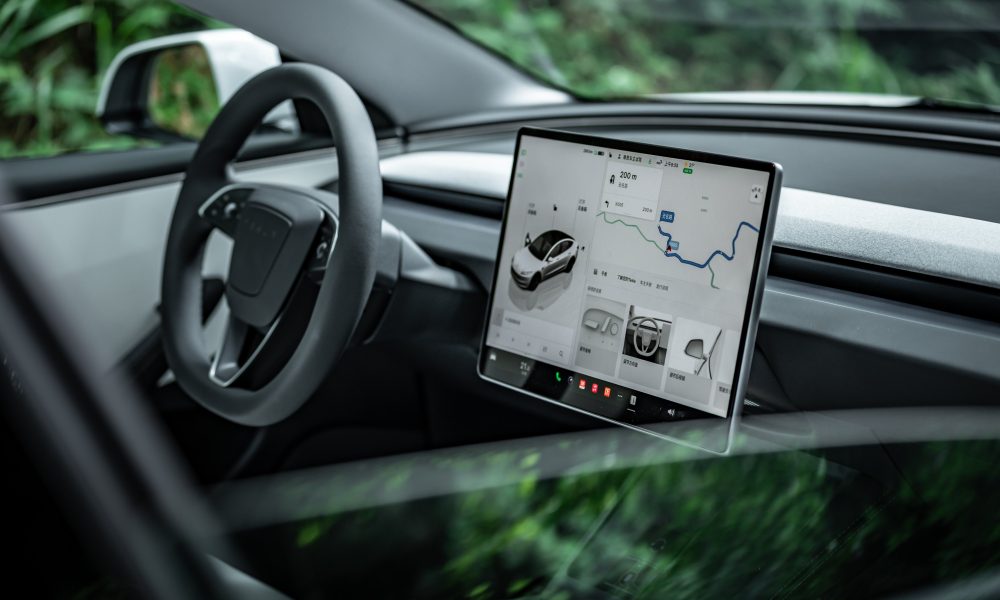
Tesla’s decision to tighten its Full Self-Driving (FSD) transfer promotion has ignited fierce debate among owners and enthusiasts.
The company quietly updated its terms in late February 2026, changing the eligibility from “order by March 31, 2026” to “take delivery by March 31, 2026.”
What began as a flexible incentive to boost sales, allowing buyers to transfer their paid FSD (Supervised) to a new vehicle, now excludes many, particularly Cybertruck owners facing delivery delays into summer or later.
Tesla maintains it will honor transfers for orders with initial delivery windows before the deadline and offers full deposit refunds otherwise, citing longstanding fine print that the program is “subject to change at any time.”
The reversal has polarized the Tesla community, with accusations of a “bait-and-switch” clashing against defenses of corporate pragmatism. Many owners who placed orders under the original wording feel betrayed, especially as production backlogs and new unsupervised FSD rollout complicate timelines.
However, Tesla has allowed them to cancel their orders and receive a refund.
Critics of the decision argue that the change disadvantages loyal customers who helped fund FSD development, calling it poor communication and a revenue grab as Tesla pivots toward subscriptions.
Popular influencers have amplified the divide. Whole Mars Catalog struck a measured but firm tone, acknowledging the original “order by” language but emphasizing Tesla’s right to adjust terms. He has continued to defend Tesla in this particular issue:
Sad to see so many fans trashing Tesla with such extreme language.
LIARS!!! PATHETIC!!! And if you aren’t as furious and angry as they are they are you’re “worshipping” and saying “they can do no wrong”.
Let’s get real here. They’re not liars. They offered FSD transfer to us… https://t.co/3Ay7vGaVR6
— Whole Mars Catalog (@wholemars) March 3, 2026
He criticized extreme backlash as “dramatization” and “spoiled kids,” noting the unsupervised FSD era and broader sales challenges make blanket transfers financially risky. Whole Mars advocated for polite outreach to CEO Elon Musk over the issue.
Rather than “calling them out”, I would simply say “Hey Elon, really hoped to be able to do FSD transfer on my cybertruck but the terms changed. Would really appreciate if Tesla could extend this to everyone who ordered before the terms changes”
that would probably work
— Whole Mars Catalog (@wholemars) March 3, 2026
In a contrasting perspective, Dirty TesLA voiced sharper frustration, posting that blocking transfers feels “crazy” and distancing himself from “people that want to worship a corporation and say they can do no wrong.” His stance resonated with owners who view the policy flip as disrespectful to early adopters.
Popular Tesla influencer Sawyer Merritt captured the frustration felt by thousands. In a widely shared thread viewed over 700,000 times, Merritt detailed how pre-change Cybertruck orders now risk losing FSD eligibility unless their initial delivery window falls before March 31.
It’s not a contradiction, it’s a change in policy that Tesla just made an hour ago. I am trying to check if the change is retroactive to all existing orders, including Cybertruck AWD orders, because if it is, that sucks big time.
— Sawyer Merritt (@SawyerMerritt) February 28, 2026
The controversy underscores deeper tensions—between Tesla’s need for revenue discipline and owners’ expectations of goodwill. As FSD evolves toward unsupervised capability, the community remains split: some see the change as necessary business, others as a broken promise. Whether Tesla reconsiders under pressure or holds firm remains to be seen, but it does not appear they are planning to budge.








